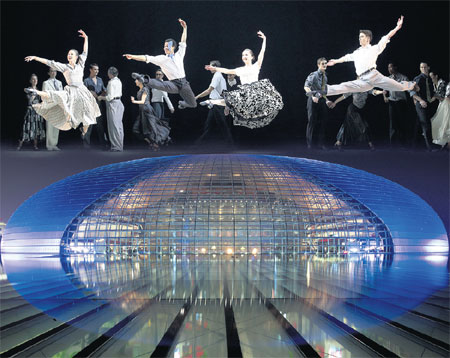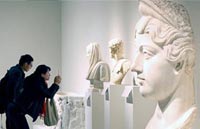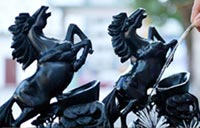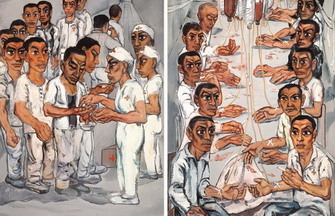|

The National Center for the Performing Arts, illuminated with performances by worldacclaimed artists, bears witness to the country's fast-growing culture industry. Liu Hongan / for China Daily
|
A new national foundation launched with money from the central government hopes to make more money available to more artists around the country - and perhaps inspire local foundations as well, Han Bingbin reports.
After three years of preparations, the China National Arts Foundation was founded at the end of 2013, with aims to expand both funding sources and access for artists. As the new entity begins to spread its wings, it's stimulating both excitement and concern in the industry. The foundation receives funding mainly from the central government and also accepts corporate and private donations. It is poised to offer financial support for the creation, promotion and collection of quality artwork, as well as education for young artists.
Observers welcome the creation of a potentially big purse for arts, but are watching to see how the purse strings are pulled. Many hope the new foundation will be as inviting to independent artists as it is to artists working within a government-based system.
A foundation council is acting as the decision maker, with a management center responsible for the administration and implementation of the foundation. An annually renewed expert committee, consisting of artists, and financial and managerial experts, reviews applications and selects the recipients and also offers consultation and supervision.
With China's fast economic growth comes a developing arts scene on both public and private levels. The number of China's art museums funded by the government, for example, is estimated to be at least 300, not to mention a growing number of privately owned ones. The country also has more than 10,000 privately run arts troupes that strive to profit from a variety of performance genres, such as traditional opera and leather-silhouette shows.
For arts organizations, money is always a big problem, says Li Zhixiang, director of the program department at the National Center for the Performing Arts. The NCPA, for example, is home to at least seven original stage shows and a dozen education programs each year. Both already need a larger investment than the current financial support they have from the Beijing municipal government.


























 Raymond Zhou:
Raymond Zhou: Pauline D Loh:
Pauline D Loh: Hot Pot
Hot Pot Eco China
Eco China China Dream
China Dream China Face
China Face





